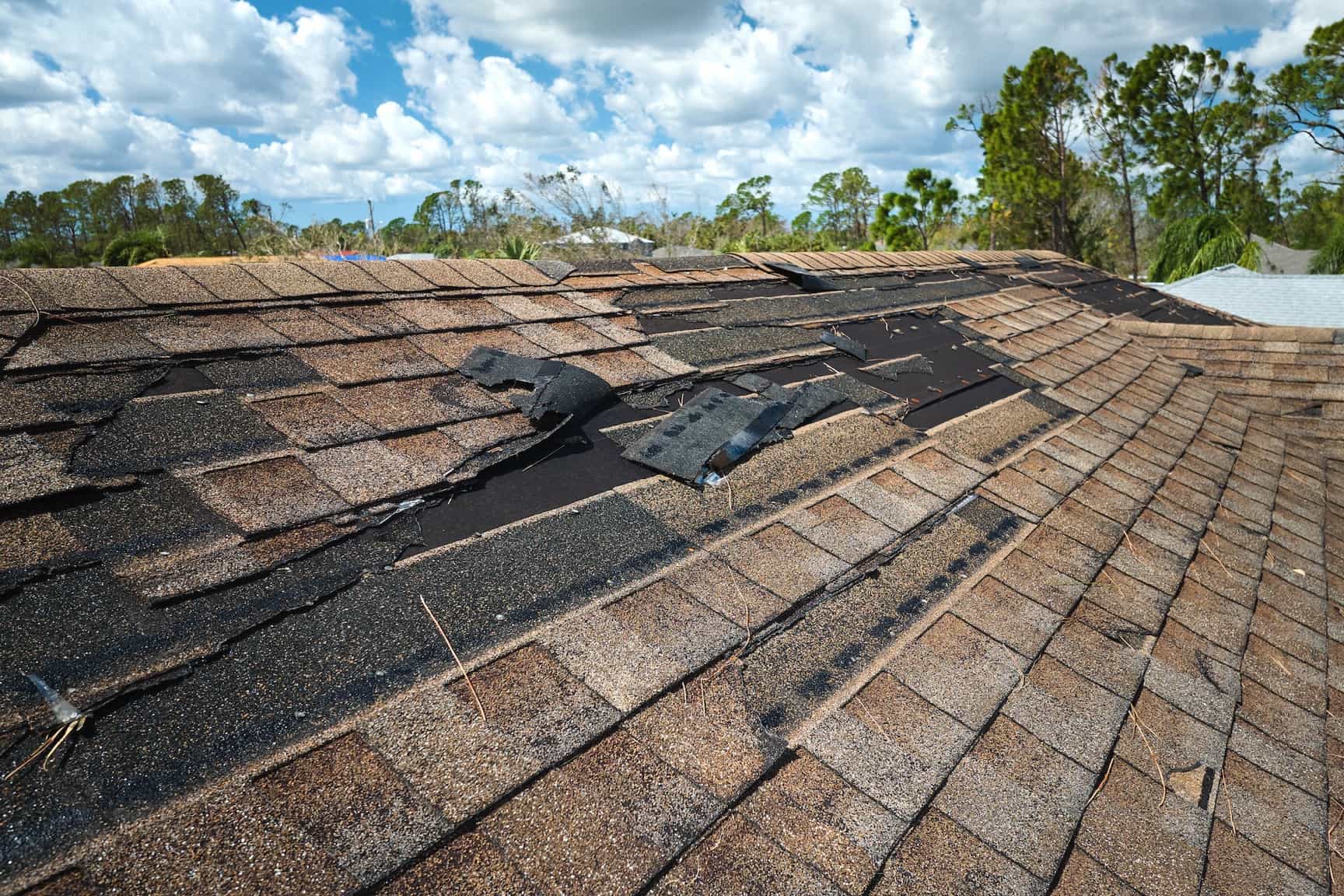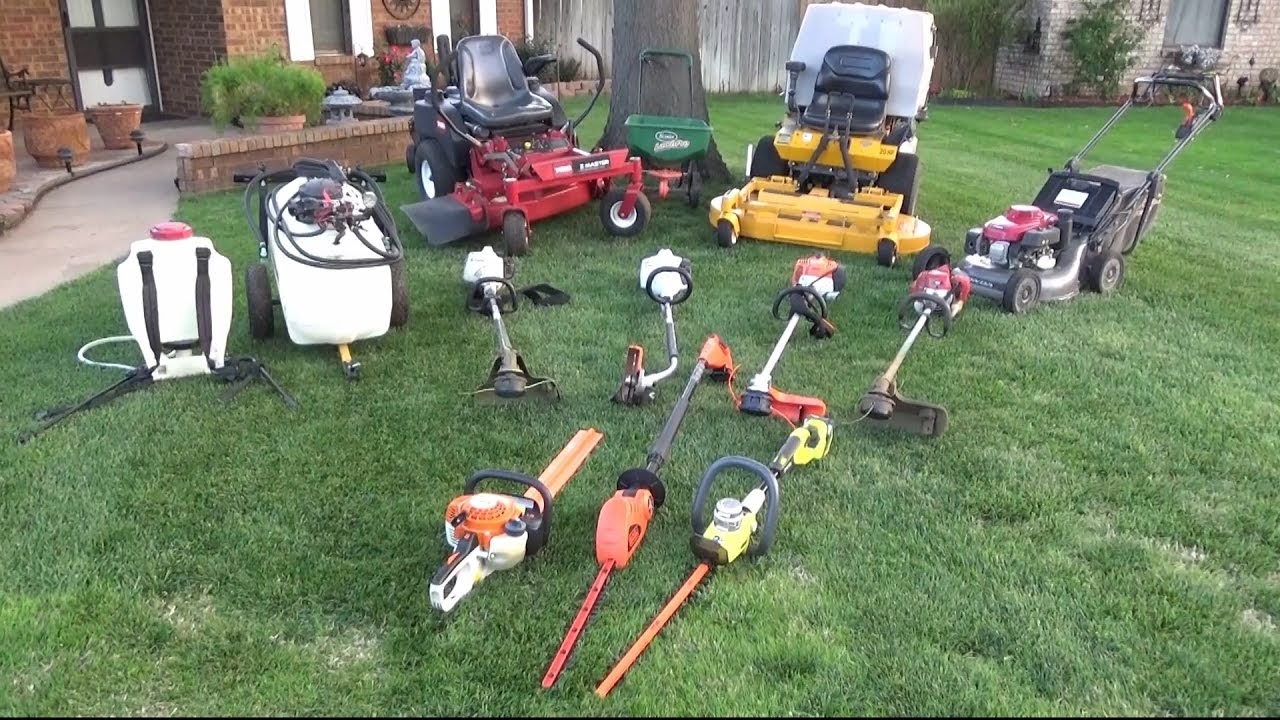Home>Garden Essentials>How Much Is Insurance For A Landscaping Business


Garden Essentials
How Much Is Insurance For A Landscaping Business
Modified: March 7, 2024
Find out how much insurance for your garden or landscaping business costs and get the coverage you need to protect your investments and clients.
(Many of the links in this article redirect to a specific reviewed product. Your purchase of these products through affiliate links helps to generate commission for Storables.com, at no extra cost. Learn more)
Introduction
When it comes to running a landscaping business, one of the most important things to consider is insurance. Insurance provides financial protection in case of accidents, property damage, or lawsuits. However, determining how much insurance coverage you need and how much it will cost can be a complex task.
Several factors come into play when calculating the insurance costs for a landscaping business. These factors include the type of business, the size and value of your equipment and property, the number of employees you have, and the nature of the services you offer. Each of these factors will affect the types and amounts of insurance coverage you will require.
In this article, we will explore the different types of insurance that are essential for a landscaping business and discuss the factors that influence insurance costs. We will also provide some estimates to give you an idea of how much you can expect to pay for insurance coverage. Finally, we will share some tips to help you lower your insurance premiums without sacrificing the protection your business needs.
Understanding the various types of insurance coverage available and their associated costs will empower you to make informed decisions that align with your business’s specific needs and budget. Let’s dive in and explore the world of insurance for landscaping businesses.
Key Takeaways:
- Insurance is crucial for landscaping businesses, protecting against accidents and lawsuits. Factors like business type, equipment size, and location influence costs. Working with an insurance agent is key to finding the right coverage.
- To lower insurance premiums, consider bundling policies, implementing safety measures, and regularly reviewing coverage needs. Insurance is an investment in protecting your business, and managing costs effectively is essential for long-term success.
Factors Affecting Insurance Costs
When it comes to determining the cost of insurance for a landscaping business, there are several key factors that insurance providers consider. These factors help insurers assess the level of risk involved in insuring your business. Let’s take a closer look at some of the main factors that can influence your insurance costs:
- Type of Business: The nature of your landscaping business plays a significant role in determining insurance costs. Different types of landscaping businesses have different risk profiles, and insurers will assess the potential risks associated with your specific operations.
- Size of Equipment and Property: The value and size of your equipment and property also impact insurance costs. Larger equipment and valuable assets may require higher levels of coverage, resulting in increased premiums.
- Number of Employees: The number of employees you have can affect insurance costs since more employees mean a higher likelihood of accidents or injuries. Insurers will take into account the number of employees and their job duties when determining your premiums.
- Nature of Services Offered: The types of services your landscaping business provides will influence insurance costs. For example, if your business offers tree removal or excavation services, insurers may consider these high-risk activities and adjust your premiums accordingly.
- Claims History: Insurance providers will assess your claims history to determine your risk level. If your business has a history of filing claims or has been involved in legal disputes, it may result in higher insurance costs.
- Coverage Limits: The coverage limits you choose for your insurance policies will impact the cost. Higher coverage limits offer more protection but may lead to higher premiums. It’s essential to strike a balance between adequate coverage and manageable costs.
- Location: The location of your business can affect insurance costs as well. Factors such as local weather conditions, crime rates, and general liability trends in your area may impact the overall risk assessment by insurers.
Keep in mind that insurance costs can vary significantly depending on these factors. It is crucial to work closely with an experienced insurance agent who specializes in the landscaping industry to determine your specific insurance needs and find the best coverage options that align with your budget.
Now that we have a better understanding of the factors that influence insurance costs for a landscaping business let’s dive into the specifics of the different types of insurance coverage that are vital for your business’s protection.
General Liability Insurance
General liability insurance is one of the most essential types of insurance for any landscaping business. It provides coverage for third-party bodily injury, property damage, and personal injury claims that may arise during the course of your business operations.
As a landscaper, you work on various properties, such as residential homes, commercial buildings, and public spaces. Accidents can happen, such as a client slipping and falling on a wet surface or damage occurring to a client’s property due to negligence. In such situations, general liability insurance steps in to protect your business financially.
This type of insurance typically covers the following:
- Bodily Injury: If a client or a member of the public is injured on your premises or as a result of your operations, general liability insurance covers medical expenses, legal fees, and any potential settlements or judgments.
- Property Damage: Accidental damage to a client’s property, such as a broken window, damaged plants, or equipment mishaps, is covered under general liability insurance.
- Personal Injury: Claims related to libel, slander, or advertising injury are covered by general liability insurance. This includes situations where your advertising leads to a client’s financial loss or reputation damage.
The cost of general liability insurance for a landscaping business depends on various factors, including the size of your business, the number of employees, the nature of services provided, and your claims history. It is crucial to work closely with an insurance agent to assess your specific needs and find the right coverage limits and deductibles for your business.
Having general liability insurance provides peace of mind and financial protection in the event of unforeseen accidents or lawsuits. Remember that each landscaping business is unique, so it is essential to evaluate your risks and consult with insurance professionals to ensure you have the appropriate coverage in place.
Property Insurance
Property insurance is an important coverage for landscaping businesses that own or lease buildings, equipment, and other physical assets. This insurance protects your property against risks such as fire, theft, vandalism, or damage caused by natural disasters.
As a landscaper, you rely on various tools, machinery, and equipment to carry out your work efficiently. These assets can represent a significant investment for your business, and any damage or loss can result in financial setbacks. Property insurance helps cover the cost of repairing or replacing damaged property, reducing the financial burden on your business.
Here are some key points to know about property insurance:
- Building Coverage: Property insurance typically covers physical structures owned or leased by your business, such as offices, warehouses, or storage facilities. It provides reimbursement for the repair or replacement of the building in the event of covered perils.
- Equipment and Contents Coverage: This aspect of property insurance protects your landscaping equipment, tools, and other assets necessary for your business operations. If your equipment is damaged, lost, or stolen, property insurance helps cover the costs of repair or replacement.
- Business Interruption Coverage: In the event of a covered loss that forces your business to suspend operations temporarily, property insurance can provide coverage for lost income and ongoing expenses until you can resume normal operations.
- Additional Coverage: Depending on your specific needs, you may be able to add additional coverages to your property insurance policy, such as coverage for off-site equipment or coverage for landscaping materials and plants.
The cost of property insurance will depend on factors such as the value of your property, the location of your business, and your claims history. It’s important to conduct a thorough assessment of your property and work closely with an insurance professional to ensure you have adequate coverage in place.
By having property insurance, you can protect your business from unexpected events that could disrupt your operations or cause significant financial strain. It is a crucial part of managing risk and safeguarding your landscaping business’s assets.
Workers’ Compensation Insurance
Workers’ compensation insurance is a required coverage for landscaping businesses that have employees. It provides benefits to employees who suffer work-related injuries or illnesses. This insurance not only protects your employees but also safeguards your business from potential lawsuits related to workplace accidents.
As a landscaper, your employees may be exposed to various hazards, including operating heavy machinery, working with power tools, or being exposed to chemicals. Accidents can happen, and workers’ compensation insurance ensures that your employees receive necessary medical treatment and wage replacement while protecting your business from legal liabilities.
Here are some key points to know about workers’ compensation insurance:
- Medical Expenses: Workers’ compensation insurance covers the cost of medical treatment and rehabilitation services for injured employees. This can include doctor visits, hospital stays, surgeries, prescription medications, and physical therapy.
- Wage Replacement: If an employee is unable to work due to a work-related injury or illness, workers’ compensation insurance provides wage replacement benefits to help compensate for lost income during their recovery period.
- Employer Liability Coverage: In addition to providing benefits to injured employees, workers’ compensation insurance also protects your business from potential lawsuits. It helps cover legal defense costs and settlement payments in case an employee sues your business for damages related to a workplace injury or illness.
- Compliance with Legal Requirements: Workers’ compensation insurance is typically required by law in most states. Failing to carry adequate workers’ compensation coverage can result in penalties, fines, or even legal consequences.
The cost of workers’ compensation insurance is influenced by several factors, including the number of employees, the nature of their work, their job classifications, and your claims history. Insurance providers will assess the level of risk associated with your specific operations when determining the premium.
It is crucial to work with an insurance agent who specializes in workers’ compensation to ensure you have the appropriate coverage in place. They can help you navigate the legal requirements and tailor a policy that meets your business’s specific needs while providing adequate protection for your employees.
By having workers’ compensation insurance, you demonstrate your commitment to your employees’ well-being and fulfill your legal obligations as an employer. It is an essential part of running a responsible and secure landscaping business.
Read more: How Much Can A Landscaping Business Make
Commercial Auto Insurance
Commercial auto insurance is a crucial coverage for landscaping businesses that utilize vehicles for their operations. Whether you have a single work truck or a fleet of vehicles, this insurance protects your business from financial losses resulting from accidents, damage, or theft involving your company vehicles.
As a landscaper, you rely on your vehicles to transport equipment, materials, and your team to job sites. The nature of your work often involves driving to different locations, which increases the risk of accidents or damage to your vehicles. Commercial auto insurance provides coverage for these risks.
Here are some key points to know about commercial auto insurance:
- Liability Coverage: Commercial auto insurance includes liability coverage to protect your business in case you or your employees are at fault in an accident. It covers bodily injury and property damage to third parties, including medical expenses, vehicle repairs, and legal fees.
- Physical Damage Coverage: This coverage safeguards your vehicles against physical damage resulting from accidents, collisions, vandalism, or theft. It helps cover the cost of repairs or replacement of your vehicles.
- Uninsured/Underinsured Motorist Coverage: In the event of an accident caused by an uninsured or underinsured driver, this coverage provides protection for your business and employees. It covers medical expenses and property damage that would otherwise be the responsibility of the at-fault driver.
- Hired and Non-Owned Auto Coverage: If your business uses rented or borrowed vehicles or employees use their personal vehicles for work purposes, this coverage protects your business from liability in case of accidents or damages.
The cost of commercial auto insurance depends on several factors, including the number of vehicles, their value, the driving records of your employees, and the amount of coverage you need. Insurance providers will assess the level of risk associated with your business and vehicles when determining your premium.
To ensure you have adequate coverage, it’s important to work closely with an insurance agent who specializes in commercial auto insurance. They can help you evaluate your needs, determine the appropriate coverage limits, and find the best policy to protect your business and vehicles.
By having commercial auto insurance, you can have peace of mind knowing that your vehicles and business are protected in case of unforeseen accidents, damage, or theft. It is a critical coverage for any landscaping business that relies on transportation for its operations.
When determining the cost of insurance for a landscaping business, factors such as the size of the business, number of employees, types of equipment, and coverage needed will all impact the price. It’s important to shop around and compare quotes from different insurance providers to find the best coverage at the most affordable price.
Professional Liability Insurance
Professional liability insurance, also known as errors and omissions (E&O) insurance, is crucial for landscaping businesses that provide professional advice or services to clients. This type of insurance protects your business from claims of negligence, errors, or omissions in your professional services.
As a landscaper, you may provide design recommendations, plant selections, or horticultural advice to your clients. If a client believes that your advice or services resulted in financial loss or damage, they may file a lawsuit claiming negligence. Professional liability insurance provides coverage for legal fees, settlements, or judgments arising from such claims.
Here are some key points to know about professional liability insurance:
- Professional Negligence: If a client alleges that you did not perform your professional duties competently or made mistakes that caused them financial harm, professional liability insurance covers the cost of defending against such claims and any resulting settlements or judgments.
- Errors or Omissions: Mistakes happen, and professional liability insurance protects your business in case of errors, omissions, or failure to deliver services as promised. This can include situations where you planted the wrong species of plants, failed to detect underlying issues, or provided incorrect advice to a client.
- Legal Defense Costs: Professional liability insurance covers the legal expenses associated with defending your business against claims of professional negligence. It can include attorneys’ fees, expert witness fees, court costs, and other related expenses.
- Claims and Settlements: In the event that a claim against your business is settled or results in a judgment against you, professional liability insurance helps cover the financial obligations, up to the policy limits.
The cost of professional liability insurance depends on factors such as the size of your business, the nature of your services, the volume of clients, your claims history, and the coverage limits you choose. Insurance providers evaluate the risk associated with your specific professional services when determining your premium.
To ensure you have the appropriate coverage, it is essential to work with an insurance agent who understands the unique risks and requirements of the landscaping industry. They can help you assess your exposure, identify any gaps in coverage, and tailor a professional liability insurance policy that meets your business’s needs.
Having professional liability insurance provides essential protection for landscaping businesses that offer professional advice or services. It helps mitigate the financial risks associated with claims of negligence or errors, allowing you to focus on delivering high-quality services to your clients with peace of mind.
Umbrella Insurance
Umbrella insurance is an additional type of coverage that goes beyond the limits of your primary insurance policies, such as general liability, commercial auto, or professional liability insurance. It provides an extra layer of protection for your landscaping business, offering higher liability limits and broader coverage.
As a landscaping business owner, you understand the importance of having adequate insurance coverage to protect your assets and mitigate risks. However, in certain situations, the liability limits of your primary policies may not be enough to cover large lawsuits or catastrophic events. This is where umbrella insurance comes into play.
Here are some key points to know about umbrella insurance:
- Additional Liability Coverage: Umbrella insurance provides additional liability coverage on top of your existing insurance policies. It helps protect your business from large financial losses resulting from lawsuits, judgments, or settlements that exceed the limits of your underlying insurance policies.
- Broad Coverage: Umbrella insurance can provide coverage for various types of claims, including general liability, commercial auto, professional liability, and employer’s liability. It offers broader protection that extends beyond the specific coverages of your primary policies.
- Cost-Effective Solution: Umbrella insurance is often considered a cost-effective solution because it provides significant coverage limits at a relatively lower cost compared to increasing the limits of individual primary policies. It offers substantial protection at a fraction of the cost that a large claim could potentially require.
- Peace of Mind: Having umbrella insurance gives you peace of mind knowing that your business is more protected against unforeseen events or lawsuits. It provides an added layer of security and helps safeguard your assets and financial stability.
The cost of umbrella insurance will depend on factors such as the size of your business, the industry you operate in, and the coverage limits you choose. Typically, insurers require you to have certain minimum liability limits on your primary policies before being eligible for umbrella coverage.
Working with an experienced insurance agent is crucial when considering umbrella insurance. They can help determine the appropriate coverage amount based on your specific needs and discuss the potential risks your business may face.
Umbrella insurance is a valuable tool for landscaping businesses as it offers an extra level of protection against potentially devastating losses. By securing umbrella coverage, you can have peace of mind, knowing that your business is protected from significant financial liabilities.
Insurance Cost Estimates
The cost of insurance for a landscaping business can vary significantly depending on a variety of factors, including the size of your business, the nature of your operations, the value of your assets, and your claims history. While it is not possible to provide precise figures without specific details, we can offer some general estimates to give you a rough idea of what you might expect to pay for insurance coverage.
General Liability Insurance: The cost of general liability insurance for a small landscaping business can range from $500 to $1,500 per year. However, the premium can increase for larger businesses or those with higher-risk operations.
Property Insurance: Property insurance costs for a landscaping business can vary based on factors such as the value of your property, equipment, and inventory. On average, you can expect to pay between $1,000 and $3,000 per year for property insurance coverage.
Workers’ Compensation Insurance: The cost of workers’ compensation insurance is typically determined by the number of employees you have, their job classifications, and your claims history. As a rough estimate, the premium can range from $2,000 to $6,000 per year for a small landscaping business.
Commercial Auto Insurance: The cost of commercial auto insurance depends on the number of vehicles, their value, and the driving records of your employees. On average, the premium for commercial auto insurance can range from $1,200 to $3,000 per vehicle per year.
Professional Liability Insurance: The cost of professional liability insurance, also known as errors and omissions insurance, varies depending on the size of your business, the nature of your services, and the coverage limits you choose. As a ballpark figure, professional liability insurance can cost between $1,000 and $3,000 per year.
Keep in mind that these estimates are general and can vary based on your specific circumstances. It is crucial to work closely with an insurance agent who specializes in the landscaping industry to get accurate quotes and determine the right coverage for your business.
Remember that insurance costs should be viewed as an investment in the protection and long-term success of your landscaping business. While the premiums may seem significant, the financial security and peace of mind that insurance provides far outweigh the potential risks and liabilities you would face without adequate coverage.
Tips for Lowering Insurance Premiums
While insurance coverage is essential for your landscaping business, it’s also important to manage your costs effectively. Here are some tips to help lower your insurance premiums without compromising on the protection your business needs:
- Shop Around: Don’t settle for the first insurance quote you receive. Take the time to shop around and compare rates and coverage options from multiple insurance providers. This will help you find the most competitive rates for the coverage you need.
- Bundle Policies: Consider bundling your insurance policies with one insurance provider. Many insurance companies offer discounts for combining policies such as general liability, property, and commercial auto insurance.
- Assess Coverage Needs: Review your insurance coverage regularly to ensure you have the appropriate coverage limits. Adjusting your coverage to align with your specific needs can help prevent overpaying for coverage you don’t require.
- Implement Safety Measures: Insurers often offer discounts for implementing safety measures. This can include installing security systems, implementing safety protocols, providing employee training, and maintaining a clean claims history.
- Manage Risks: Take proactive steps to mitigate potential risks in your landscaping business. This can include proper equipment maintenance, regular safety inspections, and adhering to industry best practices. By demonstrating a commitment to risk management, you may qualify for lower premiums.
- Increase Deductibles: Consider increasing the deductibles on your insurance policies. A higher deductible means you’ll pay more out of pocket in the event of a claim, but it can result in lower annual premium costs.
- Improve Credit Score: Maintaining a good credit score can positively impact your insurance premiums. Insurance companies often consider credit scores when determining rates, so it’s important to manage your finances responsibly.
- Work with an Insurance Specialist: Seek guidance from an insurance agent or broker who specializes in the landscaping industry. They can help you understand your unique insurance needs, find cost-effective coverage options, and identify potential discounts.
- Regularly Review and Update Policies: As your business evolves and grows, your insurance needs may change. Regularly review your policies with your insurance agent to ensure you have the appropriate coverage and take advantage of any available discounts.
By implementing these tips, you can potentially reduce your insurance costs while still maintaining the essential coverage your landscaping business requires. Remember that each insurance provider may have different discounts and factors that affect premiums, so it’s important to explore your options and find the best fit for your business.
Insurance is an investment in protecting your business from unforeseen events. By managing your insurance costs effectively, you can strike a balance between financial responsibility and ensuring your business is adequately protected.
Conclusion
Insurance is a vital component of running a successful landscaping business. It provides financial protection against accidents, property damage, lawsuits, and other unforeseen events that can threaten your business’s stability. By understanding the different types of insurance coverage available and the factors that influence insurance costs, you can make informed decisions to ensure your business is adequately protected without breaking the bank.
From general liability insurance to property insurance, workers’ compensation insurance, commercial auto insurance, professional liability insurance, and umbrella insurance, each type of coverage plays a significant role in safeguarding your business against potential risks and liabilities. Working closely with an insurance agent who specializes in the landscaping industry can help you assess your specific needs, determine appropriate coverage limits, and find the best policies to fit your budget.
While insurance premiums are an investment, there are strategies you can employ to lower costs without compromising on the protection you need. Shopping around for competitive rates, bundling policies, implementing safety measures, managing risks, and regularly reviewing and updating your policies are just a few ways to potentially reduce insurance premiums and optimize your coverage.
Remember, insurance costs will vary depending on the size of your business, the nature of your operations, the value of your assets, and your claims history. It is crucial to evaluate your specific needs and consult with insurance professionals to ensure you have the appropriate coverage in place.
Ultimately, insurance provides peace of mind and financial security for your landscaping business. It reduces the potential for significant financial losses due to accidents, lawsuits, or unexpected events, allowing you to focus on providing excellent service to your clients and growing your business.
By being proactive in managing your insurance needs, continuously assessing risks, and staying informed about industry best practices, you can protect your landscaping business and lay a solid foundation for long-term success.
Frequently Asked Questions about How Much Is Insurance For A Landscaping Business
Was this page helpful?
At Storables.com, we guarantee accurate and reliable information. Our content, validated by Expert Board Contributors, is crafted following stringent Editorial Policies. We're committed to providing you with well-researched, expert-backed insights for all your informational needs.














0 thoughts on “How Much Is Insurance For A Landscaping Business”